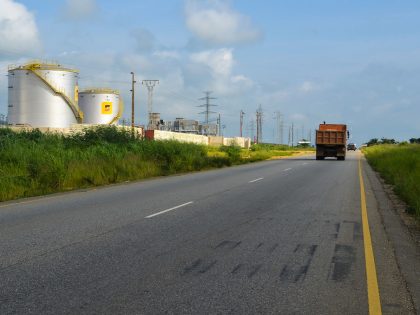
The revolution will not be posted
Is a Facebook-led social media movement enough to change a country? The case of Angola.

Is a Facebook-led social media movement enough to change a country? The case of Angola.

The specter of Angola's 1992 elections continues to impact the country's democratic process.

The funeral of popular Angolan musician Nagrelha underscored his capacity to mobilize people and it reminds us that popular culture offers a kind of Rorschach test for the body politic.

The death of Paulo Lara warrants an appreciation of his and his family’s contribution to preserving the documented history of Angola’s liberation struggle.

In contemporary Angola, the gap between the public discourse on culture and the on-the-ground reality of the arts and culture sector is deepening.

Em Angola, o governo de Presidente Lourenço não conseguiu resolver a pandemia de COVID-19 devido a corrupção e incompetência.

In Angola, President Lourenço's government failed to address COVID-19 due to corruption and incompetence.

This month on AIAC Radio we talk with Marissa Moorman and Paulo Flores to see how a music culture born in the quintals of Luanda helped birth a nation. Listen on Worldwide FM.

Angolans have made themselves in and out of Angola, in conversation with the world; they carry with them the deep look of permanent uncertainty. But also take with them the smile of resistance.

Ekwa Msangi, realizadora Tanzaniana-Americana, mostra a história de muitos imigrantes com a experiência de uma família angolana de imigração.

White settler returnees to Portugal in 1975, and the history of decolonization, can help us understand the complicated category of refugee.

Recent changes affect the daily lives of ex-combatants and other soldiers who struggle to reintegrate into society a decade after the end of the war.

Angolan political authorities are not particularly interested in justice or tackling corruption. It is more about settling scores.

No sul de Angola, para além do infindável ciclo de seca, a crise humanitária cresce por causa de razões não climatológicas.

In southern Angola, a preventable humanitarian crisis deepens. The government bears much of the responsibility.

The make-believe consensus built around local government elections continues as always to ignore the views and expectations of Angolans. But the people are organizing.

O consenso aparente construído pelo regime em torno das eleições autárquicas continua, como sempre, a ignorar as opiniões e expectativas dos angolanos. Mas a juventude angolana está a mobilizar-se.

How colonial Portugal, to project the idea of a multi-continental and multiracial country, initiated a drive to encourage white settlement in Angola and Mozambique.

Preocupado em atrair investimentos estrangeiros e combater à corrupção ao administrar uma divisão no partido no poder, o presidente angolano João Lourenço ignora o seu aliado mais forte: a sociedade civil jovem.

Preoccupied with attracting foreign investment and fighting corruption while managing a split in the ruling party, the Angolan president João Lourenço ignores his strongest ally: youthful civil society.